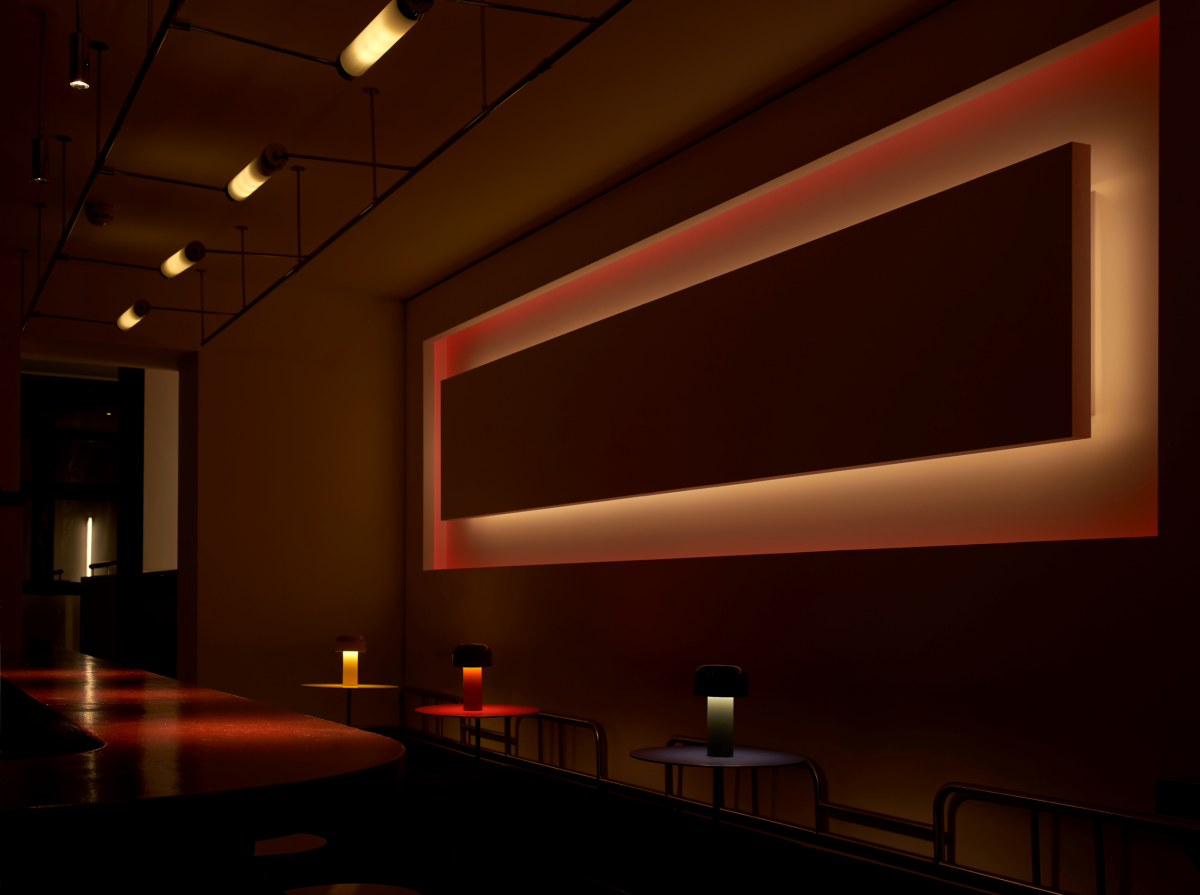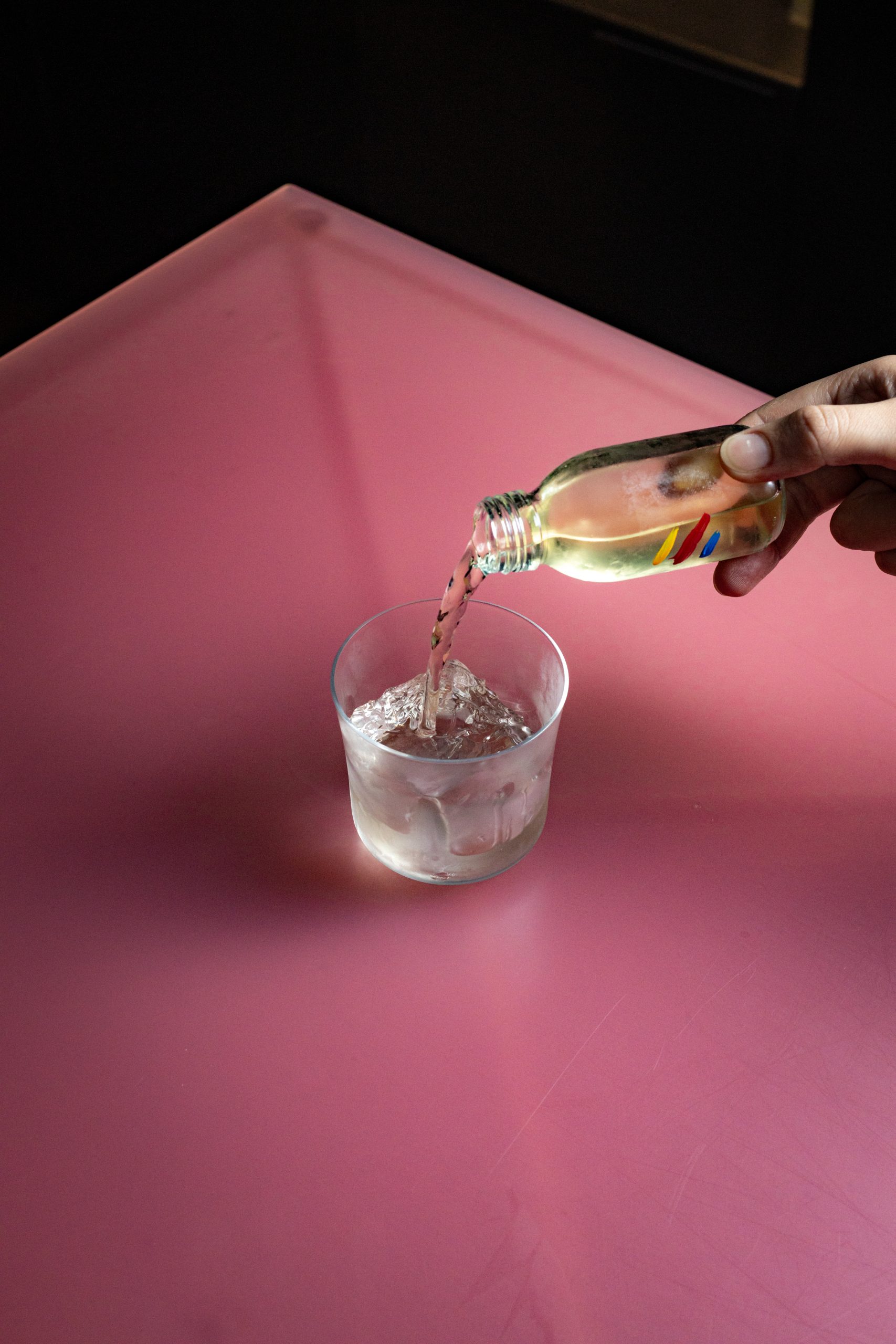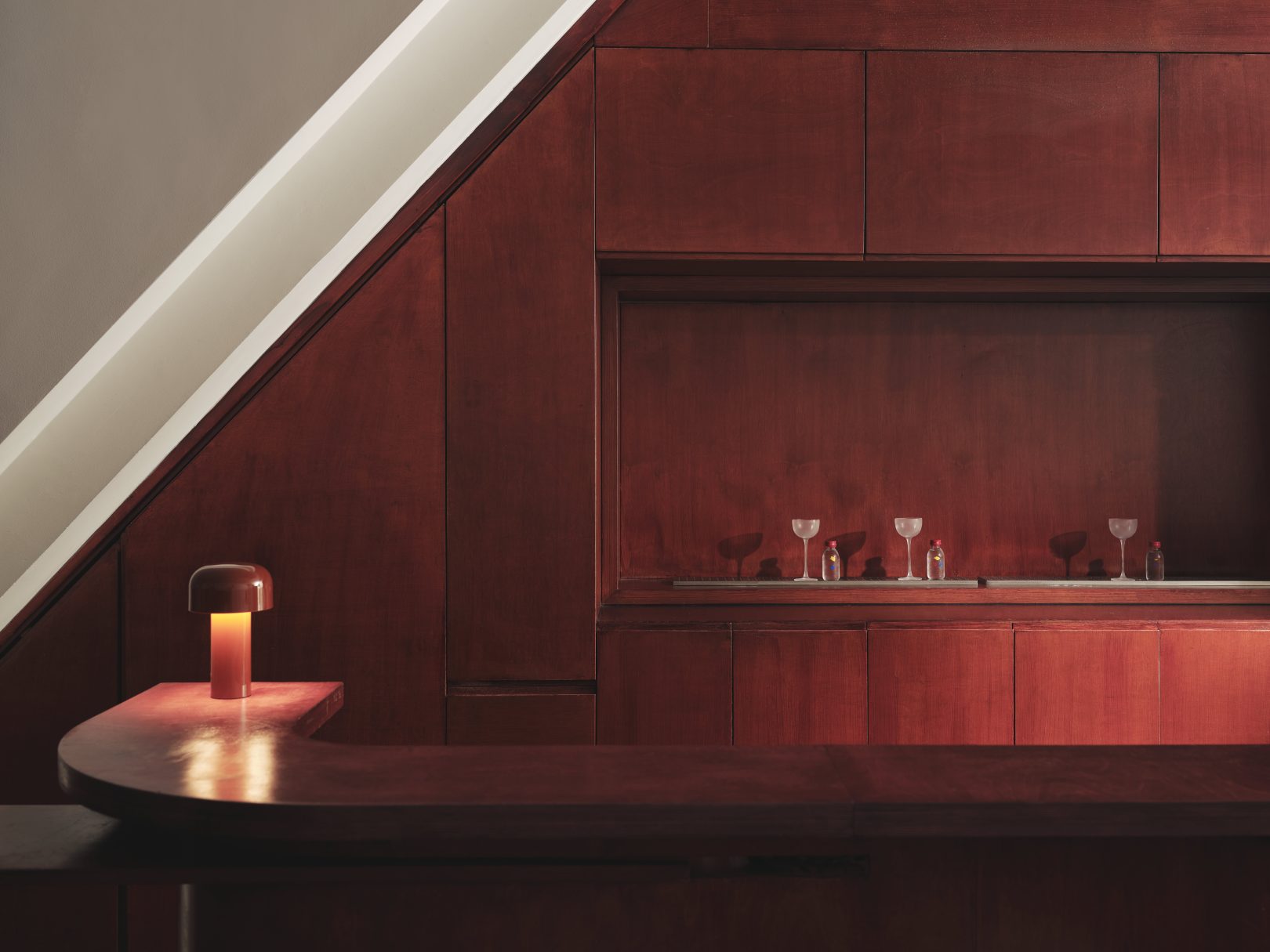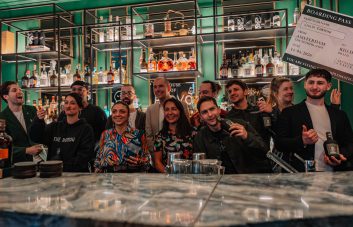East London’s 🔶🟥🔵—known colloquially as “A Bar with Shapes for a Name”—isn’t your average cocktail bar. It’s a love letter to both art and hospitality, shaped by a team whose approach to quality and collaboration is as structured as it is expressive. The concept draws heavily on the Bauhaus movement, not only in visual identity but in its underlying philosophy: form follows function, and great design—like a great drink—thrives when built from solid, thoughtful foundations.
We sat down with Maria Kontorravdis, one of the core team members behind 🔶🟥🔵, to explore the story behind the bar, how the team maintains its high standards night after night, and why the way they work with brands is deeply intentional.
Words: Albert van Beeck Calkoen
Image credits header: Felix Speller
Building Bauhaus: How the Bar Came to Life
The story of 🔶🟥🔵 began with Paul and Remy, two hospitality professionals who first crossed paths at Artesian at The Langham—then one of the most celebrated bars in the world. While working side by side, they bonded over a shared vision: to create a bar that wasn’t just about great drinks, but also about bridging the worlds of design, community, and culture. The idea of basing their concept on the Bauhaus art movement came early in their conversations. Inspired by its clean lines, functional beauty, and emphasis on collaborative creation, they saw Bauhaus not just as an aesthetic, but as a guiding framework for how the bar itself should operate.
To bring the idea to life, they brought in Captain—whose bartending roots go all the way back to his first job at the legendary Milk & Honey in London. With Paul’s experience in bistros, Remy’s in pubs, and Captain’s cocktail bar pedigree, the trio covered a broad swath of hospitality DNA. Maria joined the team later, having started her own career in student bars. What drew her in wasn’t just the bar’s visual concept, but the way it functioned as a living, breathing expression of design through service.

Operational Discipline: “How You Do Anything is How You Do Everything”
While many bars talk about quality, 🔶🟥🔵 embeds it into every corner of its operation. “We’re obsessed with maintaining standards,” says Maria. “But the way we do that isn’t through strict top-down management—it’s through consistency, routines, and communication.” Every detail is documented—from how fruit is prepared to how glassware is stacked. The goal isn’t to enforce robotic behavior, but to make high standards second nature, even when the bar is at its busiest. “We always say: how you do anything is how you do everything. If you’re sloppy when no one’s watching, you’ll be sloppy when they are.”
The team uses a combination of checklists, shared notes, and cross-training to keep things tight. It’s a setup that allows for scalability while preserving the soul of the place. And crucially, it empowers everyone—from junior staff to senior bartenders—to take ownership of the guest experience. Even during busy services, there’s space for feedback and reflection. “We do post-shift check-ins. It gives everyone a chance to say what went well, what didn’t, and what we could do better next time.”
Quality Through Culture: Training, Trust and Team Dynamics
Beneath the surface of 🔶🟥🔵 is a strong sense of cultural alignment. The team puts a lot of energy into training—but not in the sense of rigid instruction manuals. “It’s more like coaching,” Maria explains. “You give someone room to figure things out, while showing them what good looks like.” New team members are never thrown into the deep end but are guided and handed the right tools in case they unexpectedly find themselves in said deep end. They shadow others, gradually take on responsibilities, and always have a clear path to growth. “It’s not about ego or being the ‘best bartender’. It’s about making sure everyone understands the standard and can carry it forward.” The goal is a team that feels cohesive, without losing individuality. “One of the strengths of Bauhaus as a design philosophy was that it embraced different disciplines working together: painters, architects, typographers. We take the same view. A team works best when everyone brings their strengths.”
Brand Partnerships: Collaborative, Not Transactional
At 🔶🟥🔵, every bottle on the back bar has passed one crucial test: a blind tasting. The team selects spirits purely on quality, without knowing the brand, ensuring that every pour starts from a place of merit. Only after a product has earned its place on taste alone does the conversation about vision and partnership begin. “We work with brands that align with our values—both in terms of product quality and how they treat people,” Maria says. This means it’s not about having the biggest back bar or chasing sponsorship deals. Instead, the focus is on genuine partnerships: co-creating experiences, developing custom serves, and supporting brands that are willing to invest in the culture of hospitality.
“We’ve turned down offers that didn’t feel right. Not because we’re trying to be difficult, but because we want everything we do to have integrity. If we’re going to work with a brand, we want to do something cool together—not just slap a logo on a menu.” That kind of discernment goes a long way. It builds trust with guests, attracts like-minded partners, and reinforces 🔶🟥🔵’s identity as a bar with purpose, not just appearences.





